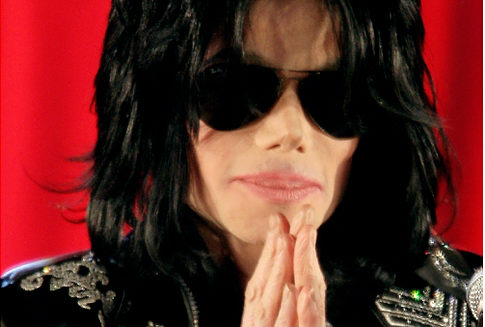Police found marijuana, sedatives in search of Michael Jackson’s home – but not heroin
A warrant served at Michael Jackson’s rented Bel-Air mansion the day after he died lists “PC 187,” the California penal code for murder, in the box labeled “probable crime.”
LOS ANGELES — Police who searched Michael Jackson’s home the day after he died were acting on information from family members who said they’d found a bag of heroin in his bedroom, but a person with knowledge of subsequent test results on the substance said it turned out not to be the drug.
The search did, however, turn up a number of other drugs including marijuana, the generic form of Valium and other sedatives. A detective also indicated Jackson’s body showed signs of injections.
The disclosure came in an affidavit supporting a search warrant that was executed June 26, three days earlier than any previously reported search of Jackson’s rented mansion in Bel-Air.
Two warrants came to light Thursday after several media outlets including The Associated Press asked to unseal four search warrants Los Angeles police detectives served in the early days of the Jackson death probe. The judge ordered two of the documents to remain sealed.
The unsealed warrants provide a glimpse into how police were directing their investigation immediately after Jackson’s death. The warrant served at his rented Bel-Air mansion the day after he died lists “PC 187,” the California penal code for murder, in the box labeled “probable crime.”
That warrant states family members told a coroner’s official “they had located a quantity of tar heroin in a bag in the decedent’s bedroom,” though the person with knowledge of tests on the substance said heroin was quickly ruled out. The person was not authorized to speak to the media and asked for anonymity.
Detectives also secured a search warrant for the car of Dr. Conrad Murray, the personal physician with Jackson when he died. The affidavit states detectives spoke to Murray in the hospital after the singer’s death but he only gave a short summary of what had happened then left the hospital over detectives’ objections.
In the intervening two months, investigators have pieced together a much fuller picture of how Jackson died and Murray has emerged as the central figure in a manslaughter probe. Investigators believe he was negligent in administering the powerful anesthetic propofol and other sedatives to Jackson and that those drugs killed the singer.
Murray’s attorney Edward Chernoff has said Murray never administered anything that “should have” killed Jackson. The coroner has not officially released autopsy results but a law enforcement official who requested anonymity because the investigation is ongoing told the AP the death has been ruled a homicide.
The search of Murray’s car turned up some documents, but no additional drugs.
Also Thursday, an attorney for Jackson’s longtime dermatologist does not plan to petition for a role in the upbringing of the singer’s three children. Mark Vincent Kaplan said Dr. Arnold Klein is satisfied that a judge appointed an attorney to oversee their interests.
Kaplan surprised many by saying Klein wanted a role in the children’s lives during a court hearing earlier this month. Jackson’s mother, Katherine Jackson, was granted permanent guardianship of the children at the hearing, and a judge ruled that Klein didn’t have legal standing to intervene, but told the doctor he could file a motion later if he still had concerns.
Kaplan said Klein got involved because he was concerned about the children having a normal upbringing not related to show business. Jackson told Klein repeatedly that he wanted his children to have a formal education and not be subjected to the rigors of traveling and performing, Kaplan said.
Klein’s involvement in the case raised questions about the whether the doctor could be the father of Jackson’s two oldest children, a rumor fueled by tabloid reports and Klein’s own cryptic answers when questioned on the matter.

